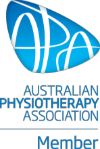Case Study: Late Diagnosis Frozen Shoulder
Introduction:
Mary* is a 72 year-old who came to The Shoulder Joint Physiotherapy with 8-month history of worsening shoulder pain. Her pain at time of assessment was severe and affecting her basic daily activities and sleep.
Patient Presentation:
Mary’s shoulder pain started after lifting heavy furniture. Previous physio treatment of strengthening exercises and strong stretches had given her ‘10/10 pain’ and she had stopped all treatment and exercises. Her GP had referred Mary for X-ray which did not show any abnormalities. Mary was getting increasingly concerned at the severity of her shoulder pain and that her shoulder was not get better after 8 months.
Examination Findings:
Mary had a clear clinical presentation of late-painful stage adhesive capsulitis (frozen shoulder) with restriction mobility of shoulder joint in all directions. Her shoulder strength when tested within available range was good, indicating no significant cuff tendon changes. Her other, non-dominant, shoulder showed signs of hypermobility.
Diagnosis and Treatment Plan:
This assessment (with consideration of clear X-ray) along with history of worsening pain and restriction allowed us to confidently give Mary a clinical diagnosis of a frozen shoulder. We were then able to discuss and plan evidence-based treatment options including option for referring for injection therapy. We reinforced to Mary that this is a unique shoulder condition that will largely ‘run its course’ and that pain on certain movements is to be expected and not a sign or worsening shoulder pathology.
Intervention:
On Mary’s initial visit we asked her to stop previous strength and stretch home exercises that were aggravating her shoulder pain. We encouraged Mary to stay fit and active and reminded her that pain related to this frozen shoulder was not sign of things getting worse but rather normal for this condition.
At a follow-up review two months later Mary was happy to report her pain was nearly gone. Examination showed she still had shoulder stiffness, consistent with her frozen shoulder progressing from painful to stiff phase. Mary decided that she did not need a steroid injection and was happy to continue with general fitness. At this visit re-started gentle isometric strength exercises within available range.
On her next review three months later Mary had regained more than 50% of her shoulder range, demonstrating that her frozen shoulder was continuing to recover. We were able to start reconditioning exercises and add in stretching to encourage recovery without causing pain.
Outcome and Results:
Mary regained full shoulder movement and function about 20 months after onset of pain. This is a normal time-frame for recovery from frozen shoulder although recovery time may differ greatly between individuals. Certain health conditions like diabetes and thyroid dysfunction may lead to more severe version of a frozen shoulder.
Mary reported that finally getting a clear clinical diagnosis, evidence-base education and treatment plan helped her greatly in tolerating the pain and restriction of her frozen shoulder. Understanding the process allowed her to confidently return to sports and general exercise without worrying about making her shoulder worse.
Discussion and Conclusion:
A frozen shoulder can be missed in early painful stage without detailed assessment. This occurs more often in people with underlying hypermobility as the early signs of reduced shoulder movement are delayed.
An early diagnosis of a frozen shoulder will avoid unhelpful and aggravating treatments (including early strengthening exercises)
With early diagnosis, appropriate evidence-based treatment options including injection therapies can be discussed and planned for
A pain X-ray of shoulder is usually only investigation needed for diagnosing frozen shoulder and is used to rule out less common bony changes
*Note: Name and identifying details have been changed
If you have more questions regarding frozen shoulders please feel free to contact us at theshoulderjoint@outlook.com. If you are concerned you may be developing a frozen shoulder and would like to be assessed by one of our expert shoulder physiotherapists you can book an appointment in Adelaide here or in Sydney here. Your physiotherapist will be able to provide a detailed clinical diagnosis and treatment plan and assist with organising appropriate shoulder investigations as required.


